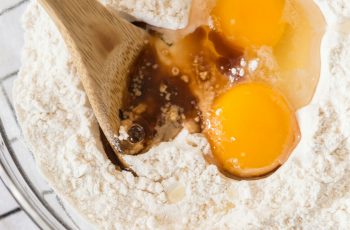Ad Blocker Detected
Our website is made possible by displaying online advertisements to our visitors. Please consider supporting us by disabling your ad blocker.
Are you experiencing symptoms of low testosterone? Don’t worry, you’re not alone. In this article, we will explore various ways for you to naturally reverse low testosterone levels. From simple lifestyle changes to incorporating certain foods and exercises into your routine, we will provide you with practical tips and guidance to help boost your testosterone levels and regain your vitality. So sit back and read on to discover how you can naturally restore your hormone balance and bring back the energy and vitality you’ve been missing.
1. Exercise Regularly
Regular exercise is essential for maintaining overall health and well-being, including testosterone levels. Engaging in cardiovascular exercises, such as jogging, swimming, or cycling, can help improve blood circulation and boost testosterone production. Additionally, weightlifting exercises, like squats, deadlifts, and bench presses, are known to stimulate testosterone release. Another effective exercise method is high-intensity interval training (HIIT), which involves alternating between short bursts of intense activity and periods of rest. By incorporating these exercises into your routine, you can naturally enhance your testosterone levels.

This image is property of images.unsplash.com.
1.1 Cardiovascular Exercises
Cardiovascular exercises play a crucial role in maintaining good cardiovascular health and boosting testosterone levels. These exercises increase heart rate and blood flow throughout the body, ensuring that vital nutrients and oxygen reach muscle tissues. Engaging in activities like jogging, swimming, cycling, or brisk walking for at least 30 minutes a day can significantly improve testosterone production. Aim for moderate-intensity exercises that elevate your heart rate and make you break a sweat.
1.2 Weightlifting
Weightlifting exercises, also known as resistance or strength training, are highly effective in boosting testosterone levels. When you engage in weightlifting, your muscles undergo stress, which signals the body to produce more testosterone to aid in muscle repair and growth. Focus on compound exercises that target multiple muscle groups, such as squats, deadlifts, bench presses, and rows. Aim for a consistent weightlifting routine, gradually increasing the intensity and weight over time.
1.3 High-Intensity Interval Training (HIIT)
High-Intensity Interval Training (HIIT) is a popular exercise method that alternates between short bursts of intense exercise and brief recovery periods. This form of exercise not only helps burn calories and improve cardiovascular health but also has positive effects on testosterone levels. HIIT workouts involve performing exercises at maximum effort for a set period, followed by a short rest interval. The intense nature of HIIT stimulates testosterone production and helps maintain hormone balance. Incorporate HIIT sessions into your weekly exercise routine for optimal testosterone levels.
2. Maintain a Healthy Diet
Diet plays a crucial role in hormone regulation, including testosterone production. By adopting a healthy and balanced diet, you can naturally boost your testosterone levels. Focus on consuming nutrient-dense foods and making specific dietary changes to optimize testosterone production.
2.1 Consume Nutrient-Dense Foods
Opt for a diet that includes a variety of nutrient-dense foods, such as fruits, vegetables, lean proteins, whole grains, and healthy fats. These foods provide essential vitamins, minerals, antioxidants, and fiber that support overall health and hormone production. Incorporating foods like spinach, broccoli, berries, avocados, nuts, seeds, and lean meats into your diet can positively impact testosterone levels.
2.2 Increase Protein Intake
Protein is crucial for muscle development and repair, and it also plays a role in testosterone production. Include quality protein sources in your diet, such as lean meats, poultry, fish, eggs, dairy products, legumes, and plant-based proteins like tofu and tempeh. Adequate protein intake supports the synthesis of testosterone and helps maintain optimal hormone levels.
2.3 Include Healthy Fats
Healthy fats are vital for hormone production and overall health. Include foods rich in monounsaturated and polyunsaturated fats, such as avocados, nuts, seeds, olive oil, fatty fish, and flaxseeds. These fats provide essential omega-3 fatty acids that are beneficial for testosterone synthesis and help maintain hormone balance.
2.4 Get Enough Zinc
Zinc is a crucial mineral that plays a significant role in testosterone production. Include zinc-rich foods in your diet, such as oysters, beef, chicken, shellfish, legumes, nuts, and seeds. Adequate zinc intake can help optimize testosterone levels and improve overall hormonal health.
2.5 Consume Vitamin D
Vitamin D deficiency has been linked to low testosterone levels. Ensure you get enough sunlight exposure or consider taking a vitamin D supplement to maintain optimal vitamin D levels. Additionally, include vitamin D-rich foods in your diet, such as fatty fish, fortified dairy products, eggs, and mushrooms.
2.6 Limit Sugar and Processed Foods
Excessive sugar intake and the consumption of processed foods can lead to hormonal imbalances, including a decrease in testosterone levels. Limit your intake of sugary foods and beverages, processed snacks, and refined carbohydrates. Instead, opt for whole, unprocessed foods to support hormone production and overall health.
3. Get Adequate Sleep
Adequate sleep is essential for maintaining optimal hormonal health, including testosterone levels. Poor sleep quality and insufficient sleep duration can negatively impact testosterone production. Follow these strategies to improve your sleep and maximize testosterone synthesis.
3.1 Establish a Regular Sleep Schedule
Establish a consistent sleep schedule by going to bed and waking up at the same time every day, even on weekends. This helps regulate your body’s internal clock, optimizing sleep quality.
3.2 Create an Ideal Sleeping Environment
Create a sleep-friendly environment by ensuring your bedroom is cool, dark, and quiet. Invest in a comfortable mattress and pillow to promote quality sleep and reduce disturbances.
3.3 Limit Artificial Light Exposure
Exposure to artificial light before bedtime, especially from electronic devices like smartphones, tablets, and televisions, can disrupt your sleep-wake cycle. Limit screen time at least one to two hours before bed to promote better sleep.

This image is property of images.unsplash.com.
3.4 Reduce Stress Before Bedtime
Engage in relaxing activities before bed to reduce stress levels and promote better sleep. Take a warm bath, practice deep breathing exercises, meditate, or read a book to unwind and prepare your mind for sleep.
3.5 Avoid Stimulants
Avoid consuming stimulants like caffeine and nicotine close to bedtime, as they can interfere with your ability to fall asleep and experience restful sleep. Opt for caffeine-free herbal teas or warm milk instead.
3.6 Consider Natural Sleep Aids
If you struggle with falling asleep or staying asleep, consider natural sleep aids like melatonin or herbal supplements that promote relaxation and improve sleep quality. However, consult with a healthcare professional before starting any new supplements.
4. Manage Stress Levels
Chronic stress can negatively impact testosterone levels. Implementing stress management techniques can help optimize hormone production and promote overall well-being.
4.1 Practice Stress-Reducing Techniques
Incorporate stress-reducing techniques into your daily routine, such as deep breathing exercises, meditation, yoga, tai chi, or mindfulness. These practices can help lower cortisol levels, a stress hormone that can interfere with testosterone production.
4.2 Engage in Relaxation Activities
Engage in activities that promote relaxation and reduce stress, such as taking walks in nature, listening to calming music, practicing hobbies, or spending quality time with loved ones. These activities can help alleviate stress and contribute to a positive mindset.
4.3 Maintain a Balanced Lifestyle
Maintain a balanced lifestyle by prioritizing self-care, setting boundaries, and managing your time effectively. Avoid overcommitting yourself and allow time for relaxation, leisure, and activities that bring you joy.
4.4 Seek Support from Loved Ones
Share your feelings and concerns with trusted friends, family members, or support groups. Building a strong support network can provide emotional support and help reduce stress levels.
4.5 Consider Seeking Professional Help
If stress is significantly impacting your daily life and well-being, consider seeking professional help from a therapist or counselor. They can provide guidance, coping strategies, and support tailored to your specific needs.
5. Maintain a Healthy Weight
Maintaining a healthy weight is essential for hormone regulation, including testosterone levels. Follow these strategies to achieve and maintain a healthy weight.
5.1 Follow a Balanced Calorie Intake
Maintain a balanced calorie intake that aligns with your activity level and weight goals. Ensure you consume enough calories to support muscle growth and hormone production, while also avoiding excessive calorie intake that can lead to weight gain.
5.2 Incorporate Physical Activity
Engage in regular physical activity to support weight management and hormone regulation. Combine cardiovascular exercises, strength training, and flexibility exercises to support overall health and maintain a healthy weight.
5.3 Monitor Portion Sizes
Maintain awareness of portion sizes to avoid overeating. Use smaller plates and bowls to help control portions and listen to your body’s hunger and satiety cues. Avoid mindless snacking and practice mindful eating to support weight management.
6. Limit Alcohol Consumption
Excessive alcohol consumption can negatively impact testosterone levels and overall health. Follow these guidelines to optimize hormone production.
6.1 Understand the Effects of Alcohol on Testosterone
Excessive alcohol consumption can disrupt hormone regulation and lead to decreased testosterone levels. Alcohol can impair liver function, which plays a crucial role in testosterone metabolism and synthesis.

This image is property of images.unsplash.com.
6.2 Practice Moderation
If you choose to drink alcohol, do so in moderation. Limit your alcohol intake to no more than moderate levels, which is generally defined as up to one drink per day for women and up to two drinks per day for men.
6.3 Choose Healthier Alternatives
Opt for healthier alternatives to alcoholic beverages, such as herbal tea, infused water, or sparkling water with a splash of citrus. These options can help quench your thirst without negatively impacting hormone production.
7. Stay Hydrated
Staying hydrated is essential for overall health, including hormonal balance. Follow these guidelines for optimal hydration.
7.1 Consume Sufficient Water
Drink an adequate amount of water throughout the day to stay hydrated. Aim for at least 8 glasses (64 ounces) of water per day, or more if you engage in intense physical activity or live in a hot climate.
7.2 Limit Intake of Sugary Drinks
Avoid sugary drinks such as soda, energy drinks, and sweetened beverages, as they can contribute to dehydration and lead to weight gain. Opt for water, unsweetened herbal tea, or infused water for a healthy and hydrating alternative.
8. Incorporate Natural Supplements
Certain natural supplements have shown potential in supporting testosterone production and overall hormonal health. Consider incorporating these supplements into your routine:
8.1 Ashwagandha
Ashwagandha is an adaptogenic herb that has been used for centuries in traditional medicine. It may help reduce stress levels, which can positively impact testosterone production. Consult with a healthcare professional before starting any new supplements.
8.2 D-Aspartic Acid
D-Aspartic acid is an amino acid that may have a positive effect on testosterone production in some individuals. However, further research is needed to fully understand its efficacy and safety. Consult with a healthcare professional before starting any new supplements.
8.3 Fenugreek
Fenugreek is an herb that may help boost testosterone levels by inhibiting enzymes that convert testosterone into estrogen. It may also support muscle strength and recovery. Consult with a healthcare professional before starting any new supplements.
8.4 Tribulus Terrestris
Tribulus terrestris is a plant extract that has been used traditionally to enhance libido and improve testosterone levels. However, research results have been mixed, and more studies are needed to determine its effectiveness and safety. Consult with a healthcare professional before starting any new supplements.
8.5 Ginger Extract
Ginger extract is a potent antioxidant with potential benefits for testosterone production. It may help reduce inflammation and oxidative stress, both of which can negatively impact hormone levels. Consult with a healthcare professional before starting any new supplements.
8.6 Vitamin D
Vitamin D deficiency has been associated with low testosterone levels. Consider getting your vitamin D levels checked and consult with a healthcare professional to determine if a vitamin D supplement is necessary for you.
8.7 Zinc
Zinc is a crucial mineral for testosterone production. If you have low zinc levels, consider supplementing with zinc after consulting with a healthcare professional.
9. Stay Active and Engage in Recreational Activities
Leading an active lifestyle and participating in recreational activities can have a positive impact on overall well-being, including testosterone levels. Explore these strategies to stay active and engaged.
9.1 Participate in Sports
Engage in sports activities that you find enjoyable and stimulating. Playing team sports or individual sports can provide both physical and mental health benefits, including improved testosterone levels.
9.2 Engage in Outdoor Activities
Spend time outdoors and participate in outdoor activities like hiking, biking, swimming, or gardening. Outdoor activities not only boost physical fitness but also provide opportunities for relaxation and stress reduction.
9.3 Explore Hobbies
Invest time in activities and hobbies that bring you joy and fulfillment. Engage in activities like painting, playing a musical instrument, reading, or cooking. Hobbies can act as a form of self-expression and allow for personal growth, positively impacting overall happiness and well-being.
9.4 Spend Time with Pets
Interacting with animals, such as having a pet or volunteering at an animal shelter, can provide emotional support and reduce stress levels. Spending time with pets has been shown to increase oxytocin, a hormone associated with happiness and well-being.
10. Consult with a Healthcare Professional
While these natural strategies can be beneficial, it is essential to consult with a healthcare professional for a comprehensive approach to addressing low testosterone levels. They can assess your specific situation, conduct necessary tests, and provide personalized recommendations.
10.1 Get a Comprehensive Check-up
Schedule a comprehensive check-up with a healthcare professional to assess your overall health, hormone levels, and any potential underlying conditions contributing to low testosterone. This assessment will help guide the most appropriate treatment plan for your specific needs.
10.2 Discuss Testosterone Replacement Therapy
In some cases, testosterone replacement therapy (TRT) may be recommended based on the severity of low testosterone symptoms and the individual’s health status. TRT involves the administration of testosterone through injections, patches, gels, or pellets. Discuss the potential benefits and risks of TRT with a healthcare professional.
What Are Some Natural Ways to Boost Testosterone Levels?
There are several ways to reverse low testosterone naturally. Regular exercise, sufficient sleep, a balanced diet including protein and healthy fats, and reducing stress can all contribute to boosting testosterone levels. Additionally, certain herbs and supplements like ashwagandha, zinc, and fenugreek may also help improve testosterone production.
10.3 Explore Other Treatment Options
Depending on the underlying causes of low testosterone, there may be alternative treatment options to consider. These may include addressing lifestyle factors, managing underlying medical conditions, or exploring natural remedies. Consult with a healthcare professional to determine the best course of action for your individual situation.
In conclusion, there are several natural ways to help reverse low testosterone levels. By incorporating regular exercise, maintaining a healthy diet, getting adequate sleep, managing stress levels, maintaining a healthy weight, limiting alcohol consumption, staying hydrated, incorporating natural supplements, staying active, and consulting with a healthcare professional, you can optimize testosterone production and improve overall hormonal health. Remember, it is important to adopt a holistic approach that takes into account your individual needs and seeks professional guidance when needed.



